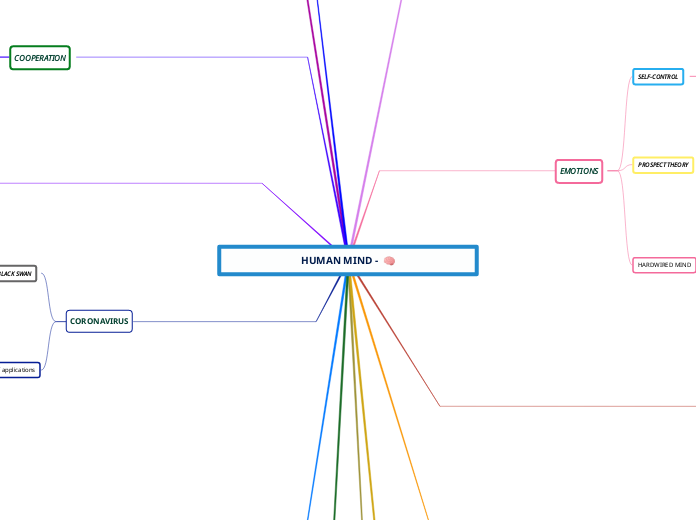realizată de JOSEP RODRIGUEZ RUIZ 2 ani în urmă
127
HUMAN MIND - 🧠

realizată de JOSEP RODRIGUEZ RUIZ 2 ani în urmă
127

Mai multe ca aceasta
High prices
Low interests
SIGNALS
Spanish "cajas"
Better conditions than in commercial banks
High demand of loans
Default of many loans
Incentivise quantity lows quality
High subjective human discount rate
We want to consume NOW
U (conditions short run) > U (conditions long run)
Market-based
PRICE SYSTEM
Signals
Defense production
Incentive for firms to produce
All information is communicated at the moment
Private healthcare system
Expropiation of medical material in order to redistribute it among population
Disincentivated firms of produce this goods
Central planification + Market system
Mix of public + Private healthcare
Change in Indian economic structure
More women available to work
Opened to more world, more oportunities
INTERNALISE THE EXTERNALITY
3) Problem solved
2) Poliandry allows family keep their lands
1) multiple division of lands
INFLUENCERS / CELEBRITIES
GENETIC BIAS
We consider them as confidence people (like family members)
"Gossip" in business
MARKETING
a lot of information available in short time
INSTANT GRATIFICATION
Reproduction
Power
Solutions
Intervention of the government
High transaction costs
Not efficient
Increase taxes to ones ho have empty properties
Mad
Moral hazard after the contract
Social movements agree with Okupation
Liberal attitude
Care?
Fairness?
Legal loophole
TRANSACTION COSTS are very high
PROPERTY RIGHT not well defined
High
Inefficient outcome
Low
Pareto-efficient outcome
Our obligation?
Eliminated by the telematic vote
Low participation on elections
Better to adapt at each situation
Market system
LESS TRANSACTION COSTS
MORE EFFICIENT
Long run
LESS EFFICIENT
MORE TRANSACTION COSTS
Jerarchy
We all can learn it
That can be easily reached by
MAKING OUR BED ON DAILY
Feeling of having achieved something every day
STATUS
To show power
Leaders
Promoting
Survival
NATURAL SELECTION
Classification before calculus
AVOID RISK
Confidence before realism
Lay on experience
Instincts/Emotions before Reason
More affected by losses
Gains
CSR
good REPUTATION
Moral matrix
Allows us to
COOPERATE
DIVERSITY
NASH EQUILIBRIUM in society order
without taking into account
PREJUDICES
Conservatives
To a lesser extent,
CENTRALISED POWER
In terms of immigration, for example
Narrow-Minded
Traditional
RISK AVERSE
Liberals
Open-minded
Do no care that much about
Purity
Freedom to do what you want with your body
Authority
We all are equal
Ingroup
They want
Inclusivity
Care about
Fairness
Equality
Harm
Purity - Sanctity
Authority - Respect
Ingroup - Loyalty
FAIRNESS-RECIPROCITY
Harm - Care
4) Offer "normal" rewards
To avoid stress on employees to achieve it
3) Rewards and promoting generate social approval and good reputation
In order to mantain good work
2) If intrinsec motivation is absent, employee should be motivated in order to make it appear
Rigid + Variable wage
1) Additional efforts should be rewarded
Bonus
Rewards
Promote
Based on repeated transactions
Private goods
Firms and wages
BASED ON RECIPROCITY
Public goods
Taxes
Employee: lower cost of having that millenial working
Employer: lower cost of working at X firm
Problem
Default?
Not having implication on facing problems
Overconfidence
Feedback is needed
Feedback,
Negative?
Positive? or
Underconfident / Overconfident
More sensitive